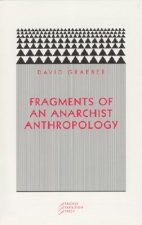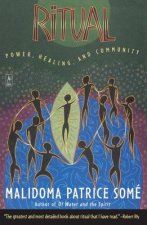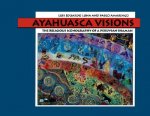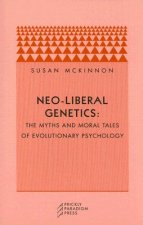
Kód: 01975814
Kaiser Wilhelm Institute for Anthropology, Human Heredity and Eugenics, 1927-1945
Autor Hans-Walter Schmuhl
When the Kaiser Wilhelm Institute for Anthropology, Human Heredity and Eugenics opened its doors in 1927, it could rely on wide political approval, ranging from the Social Democrats over the Catholic Centre to the far rightwing of ... celý popis
- Jazyk:
 Angličtina
Angličtina - Vazba: Brožovaná
- Počet stran: 468
Nakladatelství: Springer, 2010
- Více informací o knize

5094 Kč

Skladem u dodavatele v malém množství
Odesíláme za 12-15 dnů
Potřebujete více kusů?Máte-li zájem o více kusů, prověřte, prosím, nejprve dostupnost titulu na naši zákaznické podpoře.
Přidat mezi přání
Mohlo by se vám také líbit
Dárkový poukaz: Radost zaručena
- Darujte poukaz v libovolné hodnotě a my se postaráme o zbytek.
- Poukaz se vztahuje na celou naši nabídku.
- Elektronický poukaz vytisknete z e-mailu a můžete ihned darovat.
- Platnost poukazu je 12 měsíců od data vystavení.
Více informací o knize Kaiser Wilhelm Institute for Anthropology, Human Heredity and Eugenics, 1927-1945
Nákupem získáte 509 bodů
 Anotace knihy
Anotace knihy
When the Kaiser Wilhelm Institute for Anthropology, Human Heredity and Eugenics opened its doors in 1927, it could rely on wide political approval, ranging from the Social Democrats over the Catholic Centre to the far rightwing of the party spectrum. In 1933 the institute and its founding director Eugen Fischer came under pressure to adjust, which they were able to ward off through Selbstgleichschaltung (auto-coordination). The Third Reich brought about a mutual beneficial servicing of science and politics. With their research into hereditary health and racial policies the institute s employees provided the Brownshirt rulers with legitimating grounds. At international meetings they used their scientific standing and authority to defend the abundance of forced sterilizations performed in Nazi Germany. Their expertise was instrumental in registering and selecting/eliminating Jews, Sinti and Roma, "Rhineland bastards", Erbkranke and Fremdvölkische. In return, hereditary health and racial policies proved to be beneficial for the institute, which beginning in 1942, directed by Otmar Freiherr von Verschuer, performed a conceptual change from the traditional study of races and eugenics into apparently modern phenogenetics not least owing to the entgrenzte (unrestricted) accessibility of people in concentration camps or POW camps, in the ghetto, in homes and asylums. In 1943/44 Josef Mengele, a student of Verschuer, supplied Dahlem with human blood samples and eye pairs from Auschwitz, while vice versa seizing issues and methods of the institute in his criminal researches. §The volume at hand traces the history of the Kaiser Wilhelm Institute for Anthropology, Human Heredity and Eugenics between democracy and dictatorship. Special attention is turned to the transformation of the research program, the institute s integration into the national and international science panorama, and its relationship to the ruling power as well as its interconnection to the political crimes of Nazi Germany.
 Parametry knihy
Parametry knihy
Zařazení knihy Knihy v angličtině Society & social sciences Sociology & anthropology Anthropology
5094 Kč
- Plný název: Kaiser Wilhelm Institute for Anthropology, Human Heredity and Eugenics, 1927-1945
- Podnázev: Crossing Boundaries
- Autor: Hans-Walter Schmuhl
- Jazyk:
 Angličtina
Angličtina - Vazba: Brožovaná
- Počet stran: 468
- EAN: 9789048176786
- ISBN: 9048176786
- ID: 01975814
- Nakladatelství: Springer
- Hmotnost: 727 g
- Rozměry: 235 × 155 × 27 mm
- Datum vydání: 19. November 2010
Oblíbené z jiného soudku
-

Revolt Against the Modern World
616 Kč -

Crisis of the Modern World
427 Kč -

Society Against the State
546 Kč -

Trickster Makes This World
304 Kč -

Purity and Danger
573 Kč -

Gene Wars
688 Kč -

Exercised
378 Kč -

Consider The Lobster
302 Kč -

Face and Mask
1583 Kč -

Combatting Cult Mind Control
512 Kč -

Nordic Theory of Everything
323 Kč -

Fragments of an Anarchist Anthropology
333 Kč -

Cambridge Encyclopedia of Human Evolution
2563 Kč -

Why Is Sex Fun?
276 Kč -

Catching Fire
378 Kč -

Five Roles of a Master Herder
425 Kč -

Great Paleolithic War
1503 Kč -

Nature, Ritual, and Society in Japan's Ryukyu Islands
1900 Kč -

Dancing with the Dead
902 Kč -

Revealing Lateglacial Landscapes
1126 Kč -

Our Origins
2410 Kč -

Bones of Contention
1226 Kč -

Interaction Ritual
1665 Kč -

Exploration and Discovery - Treasures of the Yale Peabody Museum of Natural History
613 Kč -

Watching the English
302 Kč -

Utopia Of Rules
393 Kč -

Continuum Concept
378 Kč -

Kill All Normies - Online culture wars from 4chan and Tumblr to Trump and the alt-right
315 Kč -

Ritual
302 Kč -

Totem and Taboo
185 Kč -

How Forests Think
862 Kč -

Designs for the Pluriverse
848 Kč -

When Languages Die
1002 Kč -

Protestant Ethic and Other Writings
429 Kč -

Human Story
356 Kč -

On Saudi Arabia
462 Kč -

Limits to Medicine
375 Kč -

Small Places, Large Issues
570 Kč -

Think Like an Anthropologist
302 Kč -

Sixty Million Frenchmen Can't Be Wrong
460 Kč -

Botany of Desire
410 Kč -

Direct Action: An Ethnography
721 Kč -

Ayahuasca Visions
819 Kč -

Alexander Dumas Dictionary Of Cuisine
1811 Kč -

Stone Age Economics
573 Kč -

Oxford Handbook of Language Evolution
1428 Kč -

Possibilities
487 Kč -

On Kings
795 Kč -

Memorial Museums
1415 Kč
Osobní odběr Praha, Brno a 12903 dalších
Copyright ©2008-24 nejlevnejsi-knihy.cz Všechna práva vyhrazenaSoukromíCookies







 Vrácení do měsíce
Vrácení do měsíce 571 999 099 (8-15.30h)
571 999 099 (8-15.30h)